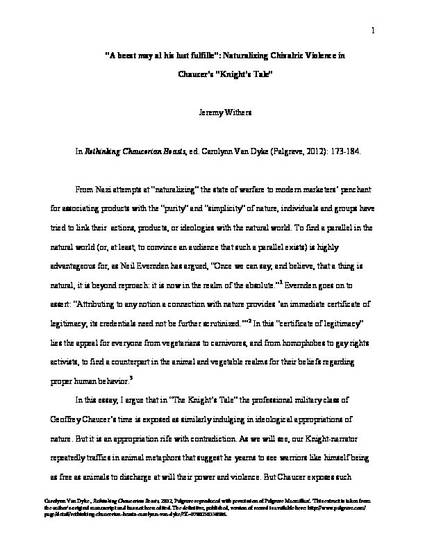
From Nazi attempts at “naturalizing” the state of warfare to modern marketers’ penchant for associating products with the “purity” and “simplicity” of nature, individuals and groups have tried to link their actions, products, or ideologies with the natural world. To find a parallel in the natural world (or, at least, to convince an audience that such a parallel exists) is highly advantageous for, as Neil Evernden has argued, “Once we can say, and believe, that a thing is natural, it is beyond reproach: it is now in the realm of the absolute.”1 Evernden goes on to assert: “Attributing to any notion a connection with nature provides ‘an immediate certificate of legitimacy; its credentials need not be further scrutinized.’”2 In this “certificate of legitimacy” lies the appeal for everyone from vegetarians to carnivores, and from homophobes to gay rights activists, to find a counterpart in the animal and vegetable realms for their beliefs regarding proper human behavior.
Available at: http://works.bepress.com/jeremy_withers/5/

Carolynn Van Dyke , Rethinking Chaucerian Beasts, 2012, Palgrave reproduced with permission of Palgrave Macmillan'. 'This extract is taken from the author's original manuscript and has not been edited. The definitive, published, version of record is available here: http://www.palgrave.com/ page/detail/rethinking-chaucerian-beasts-carolynn-van-dyke/?K=9780230338586.